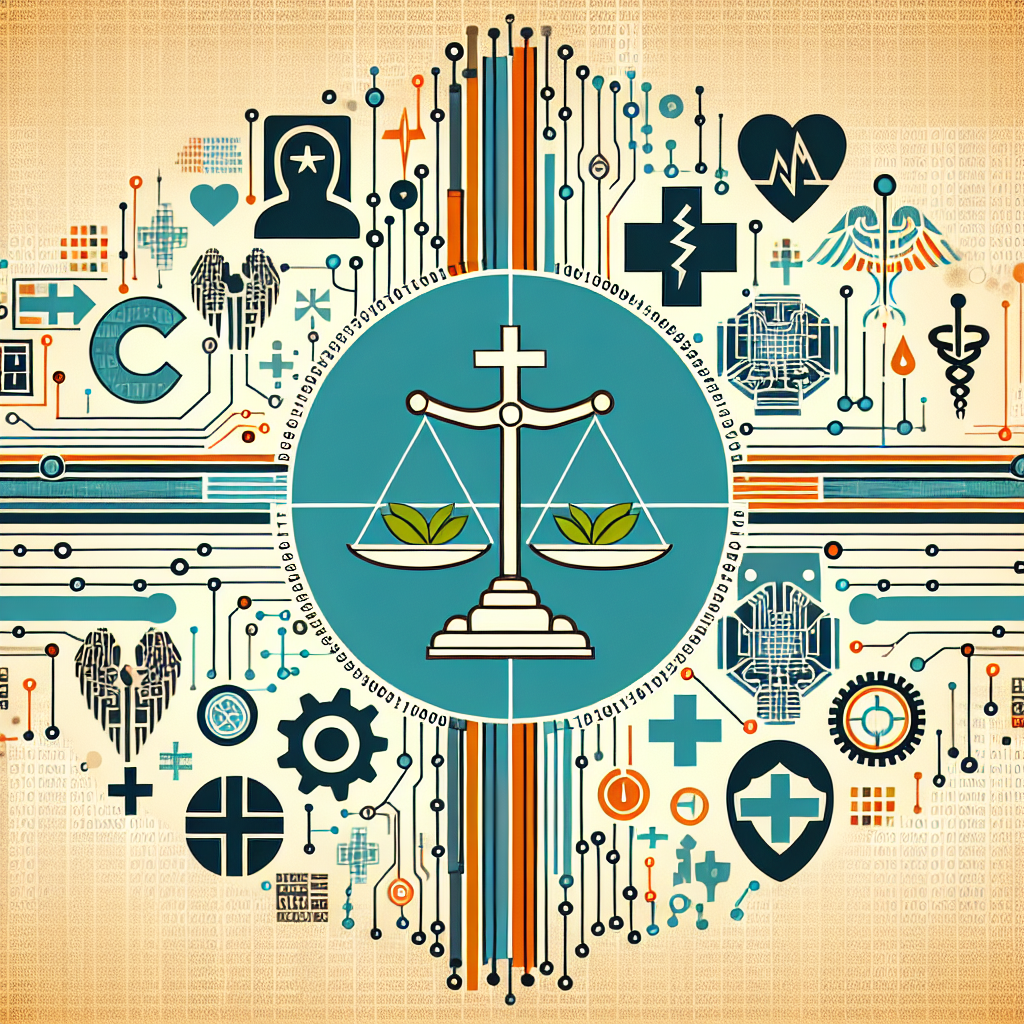In recent years, the use of artificial intelligence (AI) in healthcare has become more prevalent, particularly in the area of diagnosis. AI has the potential to revolutionize the way healthcare is delivered, improving accuracy, efficiency, and accessibility. However, as with any new technology, there are ethical considerations that must be taken into account when using AI in healthcare diagnosis.
One of the main ethical issues surrounding the use of AI in healthcare diagnosis is the potential for bias. AI algorithms are only as good as the data they are trained on, and if the data used to train the AI contains biases, those biases can be perpetuated in the diagnosis process. For example, if the data used to train an AI algorithm is disproportionately skewed towards a certain demographic group, the algorithm may be more accurate in diagnosing conditions in that group while potentially missing diagnoses in other groups.
Another ethical concern is the issue of transparency and accountability. AI algorithms can be complex and difficult to interpret, making it challenging for healthcare professionals to understand how a diagnosis was reached. This lack of transparency can make it difficult for patients to trust the diagnosis and can also make it challenging to hold AI systems accountable for errors or biases.
Privacy is also a major ethical concern when it comes to using AI in healthcare diagnosis. AI algorithms often require access to large amounts of personal health data in order to make accurate diagnoses. This raises concerns about who has access to this data, how it is being used, and how it is being protected from potential breaches or misuse.
Despite these ethical concerns, there are also many potential benefits to using AI in healthcare diagnosis. AI algorithms have the potential to improve diagnostic accuracy, reduce human error, and increase efficiency in the healthcare system. AI can also help to bridge the gap in access to healthcare services, particularly in underserved communities where access to healthcare professionals may be limited.
In order to ensure that the use of AI in healthcare diagnosis is ethical, several measures can be taken. First and foremost, it is important to ensure that the data used to train AI algorithms is representative of the population as a whole and free from biases. This may require collecting more diverse and inclusive datasets and regularly auditing algorithms for bias.
Transparency and accountability are also key considerations when using AI in healthcare diagnosis. Healthcare professionals should be provided with clear explanations of how AI algorithms reach their diagnoses, and mechanisms should be put in place to hold AI systems accountable for errors or biases. Patients should also be informed about how their data is being used and have the opportunity to opt out if they so choose.
Privacy concerns can be addressed by implementing robust data protection measures, such as encryption, anonymization, and access controls. It is also important to comply with relevant privacy regulations, such as the Health Insurance Portability and Accountability Act (HIPAA) in the United States.
In conclusion, the use of AI in healthcare diagnosis has the potential to revolutionize the way healthcare is delivered, but it also raises important ethical considerations. By addressing issues of bias, transparency, accountability, and privacy, we can ensure that the use of AI in healthcare diagnosis is ethical and benefits patients and healthcare providers alike.
FAQs:
1. How can bias be minimized in AI algorithms used for healthcare diagnosis?
Bias can be minimized in AI algorithms by ensuring that the data used to train the algorithms is representative of the population as a whole and free from biases. This may require collecting more diverse and inclusive datasets and regularly auditing algorithms for bias.
2. How can transparency and accountability be improved in the use of AI in healthcare diagnosis?
Transparency and accountability can be improved by providing healthcare professionals with clear explanations of how AI algorithms reach their diagnoses and implementing mechanisms to hold AI systems accountable for errors or biases. Patients should also be informed about how their data is being used and have the opportunity to opt out if they choose.
3. What measures can be taken to address privacy concerns when using AI in healthcare diagnosis?
Privacy concerns can be addressed by implementing robust data protection measures, such as encryption, anonymization, and access controls. It is also important to comply with relevant privacy regulations, such as HIPAA in the United States. Patients should be informed about how their data is being used and have the opportunity to opt out if they choose.

